
Global assembling of Academicians, Researchers, Scholars & Industry to disseminate and exchange information at 100+ Allied Academies Conferences
Adhered to the completion of “The 2nd International Conference on Clinical Toxicology and Pharmacology 2018, Dubai UAE” successfully on behalf of the entire team of Allied Academies it is our extreme pleasure and honor to enhance you a warm welcome to attend our auspicious “3rd International Conference on Clinical Toxicology and Pharmacology” that is going to be held on Sep 09-10, 2020 through Webinar provides a wonderful forum to refresh your knowledge base and explore the innovation. Clinical Toxicology 2020 will be focusing on the theme "Scrutinizing on Latest Upgradation in Clinical Toxicology and Pharmacology".
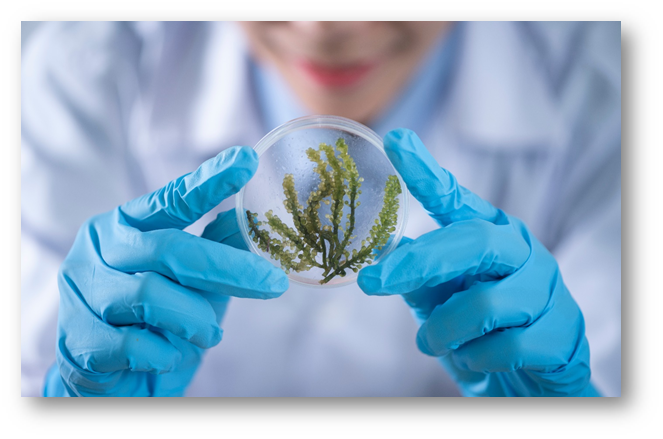
The International Toxicology and Pharmacology 2020 the event provides a novel chance for the participants with varied backgrounds to share their analysis and concepts and to be told from different colleagues regarding the latest scientific enhancement within the field of Toxicology and its interconnected disciplines. It’s an extraordinary event for professionals to boost their data and applications of analysis discovering within the area of toxicology.
With Regards
Organizing Committee
Clinical Toxicology 2020
Withthe contribution of the world’s most eminent personalities we have almost exploredthe latest advancements in the field of Clinical Toxicology and Pharmacology.It’s a pretty herculean task to cover everything in 48 hrs but the short thatwas given is worthwhile. As it was quoted by Edmond Mbiaka “The quest for knowledge never ends; it just leads to morecuriosities that lead to a greater mind.” All we can say is this is just a beginning, we stillhave a long way to go to enlighten the future generation about Clinical Toxicology and Pharmacologyso that we can have a better tomorrow and we would try our best in our upcomingconferences. With a vision of making this world a better place, we would like tostart the final report of “The International Conference on ClinicalToxicology and Pharmacology2018 Dubai, UAE December 3,4, 2018”.
Wewould like to extend our gratitude to all the excellent keynotes, speakers,conference attendees, students, associations, media partners, exhibitor andguests who left no stone unturned to make this Clinical Toxicology2018 conference a huge success.
AAChosted the event International Conferenceon Clinical Toxicology and Pharmacology during December 3-4,2018 at Marriot Executive apartments Al Jadaf, Dubai with thetheme “Exploring the latest advancements in Clinical Toxicology and Pharmacology”. Anenormous credit should be given to the Benevolence and the zestful engagementof The Editorial Board Members in supporting the International Journals as wellas from the leading Pedagogical clinicians, scientists, professors, studentsand leaders from the field of Clinical Toxicology and Pharmacology is thecause to make this event successful.
The Conference venue’s roof was shared by young andbrilliant researchers, business delegates and talented student communitiesrepresenting more than 18 countries, whose enthusiasm and curiosities havedriven this event into the path of success. The conference highlighted throughvarious sessions on current rhetorical research.
Clinical Toxicology 2018 witnessed renowned speakers who enlightened thecrowd with their ocean of knowledge and confabulated on various nobleadvancements related to the fields of Toxicology, Neurotoxicology, Toxicopathology, CardiovascularToxicology, Environmental Toxicology, ForensicToxicology, Applied Pharmacology, etc.
Numerous Scientific-sessions and plenary lectures were carried outrelated to Clinical Toxicology and Pharmacology.The conference was commenced with an opening ceremony followed by a series oflectures delivered by both Honourable Guests and members of the Keynote forum.
Clinical Toxicology is the field of study that involves the deep research of adverse effects and diseases induced by the toxins to the human body. The various sciences that come under the research field of clinical toxicology are pharmacology, biochemistry, and pathology. Clinical toxicology is one of the disciplines that can be practiced not only by physicians but it can also have involvements and contributions to health professionals such as physician extenders (physician assistants, nurse practitioners), nurses, pharmacists and allied health professionals. This session in Clinical Toxicology would be very helpful to gain further information and take precautions for a healthy and a peaceful life. To know more about Clinical Toxicology and Pharmacology Conference.
Related: Clinical Toxicology Conference | Clinical Toxicology Conferences | Clinical Toxicology Congress | Toxicology Conference | Toxicology Conferences | Toxicology Congress | Pharmacology Conference | Pharmacology Conferences | Pharmacology Congress | Pharmaceutical Conference | Pharmaceutical Conferences | Pharmaceutical congress | Environment Toxicology and Pharmacology | Pharmaceutics Conference
Related Conferences: 3rd World Congress on Environmental Toxicology and Health March 30-31,2020 Osaka, Japan; 22nd World Congress on Toxicology and Pharmacology April 22-23, 2020 Kyoto, Japan; Annual Conference on Inhalation Toxicology October 22-23, 2020 Helsinki, Finland; 19th International Conference on Global Toxicology and Risk Assessment November 05-06, 2020 Madrid, Spain
Related Associations: International Union of Toxicology Society of Toxicology, American College of Toxicology, Academy of Toxicological Sciences, European Association for Veterinary Pharmacology and Toxicology, American Association of Clinical Toxicology, California Association of Toxicologists, American Academy of Clinical Toxicologists, Association of Inhalation Toxicologists, Society of Toxicology, India
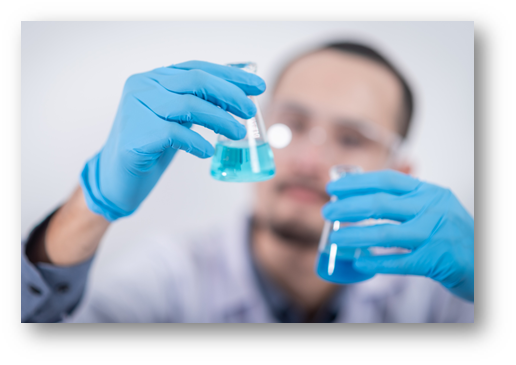
In drug development, preclinical development, also named preclinical studies and nonclinical studies is a stage of research that begins before clinical trials (testing in humans) can begin, and during which important feasibility, iterative testing, and drug safety data are collected.
The main goals of pre-clinical studies are to determine the safe dose for first-in-man study and assess a product's safety profile. Products may include new medical devices, drugs, gene therapy solutions and diagnostic tools.
Each class of product may undergo different types of preclinical research. For instance, drugs may undergo Pharmacodynamics (what the drug does to the body) (PD), Pharmacokinetics (PK), ADME, and Toxicology testing. This data allows researchers to allometrically estimate a safe starting dose of the drug for clinical trials in humans. Most preclinical studies must adhere to GLPs in ICH Guidelines to be acceptable for submission to regulatory agencies such as the Food & Drug Administration in the United States.
Typically, both in vitro and in vivo tests will be performed. Studies of a drug's toxicity include which organs are targeted by that drug, as well as if there are any long-term carcinogenic effects or toxic effects on mammalian reproduction.
Related: Clinical Toxicology Conference | Clinical Toxicology Conferences | Clinical Toxicology Congress | Toxicology Conference | Toxicology Conferences | Toxicology Congress | Pharmacology Conference | Pharmacology Conferences | Pharmacology Congress | Pharmaceutical Conference | Pharmaceutical Conferences | Pharmaceutical congress | Environment Toxicology and Pharmacology | Pharmaceutics Conference
Related Conferences: 3rd World Congress on Environmental Toxicology and Health March 30-31,2020 Osaka, Japan; 22nd World Congress on Toxicology and Pharmacology April 22-23, 2020 Kyoto, Japan; Annual Conference on Inhalation Toxicology October 22-23, 2020 Helsinki, Finland; 19th International Conference on Global Toxicology and Risk Assessment November 05-06, 2020 Madrid, Spain
Related Associations: Spanish Society of Cardiology, European Society of Cardiology, World Heart Federation, Brazilian Society of Toxicology, European Centre for Ecotoxicology and Toxicology of Chemicals(ECETOC), Academy of Toxicological Sciences, American College of Toxicology, Association of Comparative and Environmental Toxicology, Australasian Society of Clinical and Experimental Pharmacologists and Toxicologists, Egyptian Society of Toxicology.
Cardiovascular Toxicology deals with the antagonistic impacts on the circulatory system which results from the introduction to harmful chemicals. It refers to the security information of the hindrance actions of new cardiovascular drugs. Organophosphates affect myocardial peripheral nerves as well as central nervous system centers controlling heart rhythm. As a result, it is known that the toxic consequences of excess acetylcholine can result in cardiac slowing, arrhythmias, and sudden death. Organochlorines such as lindane, endosulfan, Methoxychlor, and dicofol are used quite often in the United States. This type of pesticide must be known to produce hypertension and tachycardia with associated arrhythmias. Pyrethroids are synthetic neurotoxins used as insecticides. It inhibits the enzyme Na+ K+ -ATPase and affects Na+ channels of excitable tissues. Make use of the Clinical Toxicology scientific platform to know more about the cardiovascular diseases caused by chemical toxicants. To know more Clinical Toxicology and Pharmacology Conference.
Related: Clinical Toxicology Conference | Clinical Toxicology Conferences | Clinical Toxicology Congress | Toxicology Conference | Toxicology Conferences | Toxicology Congress | Pharmacology Conference | Pharmacology Conferences | Pharmacology Congress | Pharmaceutical Conference | Pharmaceutical Conferences | Pharmaceutical congress | Environment Toxicology and Pharmacology | Pharmaceutics Conference
Related Conferences: 3rd World Congress on Environmental Toxicology and Health March 30-31,2020 Osaka, Japan; 22nd World Congress on Toxicology and Pharmacology April 22-23, 2020 Kyoto, Japan; Annual Conference on Inhalation Toxicology October 22-23, 2020 Helsinki, Finland; 19th International Conference on Global Toxicology and Risk Assessment November 05-06, 2020 Madrid, Spain
Related Associations: Spanish Society of Cardiology, European Society of Cardiology, World Heart Federation, Brazilian Society of Toxicology, European Centre for Ecotoxicology and Toxicology of Chemicals(ECETOC), Academy of Toxicological Sciences, American College of Toxicology, Association of Comparative and Environmental Toxicology, Australasian Society of Clinical and Experimental Pharmacologists and Toxicologists, Egyptian Society of Toxicology.
Neurotoxicity refers to an unfavorable change in the science, structure, or mechanism of the sensory system following accountability to a physical or a chemical operator. Advances in our understanding of the structure and function of the nervous system have boosted the formation of chemicals and reagents for treating diseases such as Parkinson's syndrome, Alzheimer's disease, and mild depression. However, some drugs may lead to awful nervous system side effects that can limit their utility in disease treatment. The anticancer drugs vincristine and cisplatin detreat the sensory nerves in the fingers and the antibiotic gentamycin can affect hearing. This session at Clinical Toxicology would mainly focus on scrutinizing the thoughts with respect to neurological and behavioral impacts of introduction to toxic substances. To know more Clinical Toxicology and Pharmacology Conference.
Related: Clinical Toxicology Conference | Clinical Toxicology Conferences | Clinical Toxicology Congress | Toxicology Conference | Toxicology Conferences | Toxicology Congress | Pharmacology Conference | Pharmacology Conferences | Pharmacology Congress | Pharmaceutical Conference | Pharmaceutical Conferences | Pharmaceutical congress | Environment Toxicology and Pharmacology | Pharmaceutics Conference
Related Conferences: 3rd World Congress on Environmental Toxicology and Health March 30-31,2020 Osaka, Japan; 22nd World Congress on Toxicology and Pharmacology April 22-23, 2020 Kyoto, Japan; Annual Conference on Inhalation Toxicology October 22-23, 2020 Helsinki, Finland; 19th International Conference on Global Toxicology and Risk Assessment November 05-06, 2020 Madrid, Spain
Related Associations: International Neurotoxicology Association, Academy of Toxicological Sciences, American Academy of Clinical Toxicology, California Association of Toxicologists, Austrian Society of Toxicology, Asia Pacific Association of Medical Toxicology, Association of Toxicology, India
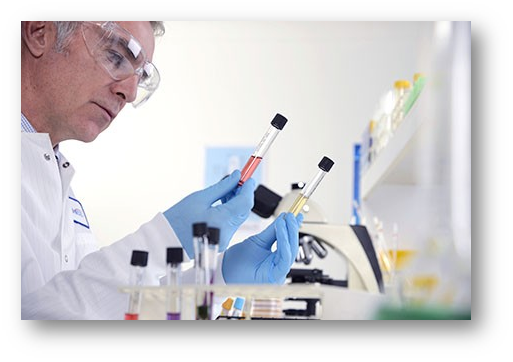
Toxicopathology is the deep analysis of integral and factual changes in cells, tissues, and organs that are caused by toxicants, (for example, drugs, industrial and agricultural chemicals), poisons (chemicals of natural origin, for example, mycotoxins), and physical operators, (for example, heat, and radiation); the inspection of the mechanisms by which these changes are induced; and the development of risk assessment and risk management policies based on such information. Toxicologic pathology primarily associate with the morphologic or structural effects of the toxicant and the mechanism by which this structural effect is activated. In this session, we can gain an overall knowledge of how different chemicals affect the cells, tissues, and organs in the human body at Clinical Toxicology. To know more Clinical Toxicology and Pharmacology Conference.
Related: Clinical Toxicology Conference | Clinical Toxicology Conferences | Clinical Toxicology Congress | Toxicology Conference | Toxicology Conferences | Toxicology Congress | Pharmacology Conference | Pharmacology Conferences | Pharmacology Congress | Pharmaceutical Conference | Pharmaceutical Conferences | Pharmaceutical congress | Environment Toxicology and Pharmacology | Pharmaceutics Conference
Related Conferences: 3rd World Congress on Environmental Toxicology and Health March 30-31,2020 Osaka, Japan; 22nd World Congress on Toxicology and Pharmacology April 22-23, 2020 Kyoto, Japan; Annual Conference on Inhalation Toxicology October 22-23, 2020 Helsinki, Finland; 19th International Conference on Global Toxicology and Risk Assessment November 05-06, 2020 Madrid, Spain
Related Associations: International Academy of Toxicologic Pathology, American College of Veterinary Pathologists, International Society of Clinical Pathology, World Federation of Constituent Societies of Pathology, World Association of Societies of Pathology and Laboratory Medicine (WASPALM), Cameroon Society for Toxicological Sciences, Australasian College of Toxicology and Risk Assessment, Finnish Society of Toxicology, British Toxicology Society(BTS), Australasian Society of Clinical and Experimental Pharmacologists and Toxicologists.
Hemostasis is the first step of wound curative after the wounded control to bleed. If hemostasis does not occur it can lead to an excess of blood loss which can lead to the death of the person. We are aware that the liquid monomer component of Methyl Methacrylate (MMA) is cytotoxic. Implantation of acrylic cement in human beings has been reported to be associated very frequently with fatal cardiorespiratory collapse. This results in a higher incidence of deep vein thrombosis (DVT) and proximal DVT after cemented hip and knee joint replacements compared to non-cemented total joint replacements. Non-aspirin nonsteroidal anti-inflammatory drugs (NSAIDs). These drugs initialize the bleeding tendency, which blocks the development of thromboxane A2. Moreover, the danger of systemic bleeding with NSAIDs is increased by liquor or anticoagulants, and by related conditions, which includes thrust age, liver sickness, and other hemorrhagic diatheses. Because of the growing crisis of bleeding in such patients, acetaminophen or different analgesics that don't influence platelet capacity ought to be substituted for NSAIDs at whatever point conceivable. Join Clinical Toxicology to get further knowledge about how toxic substances influence bloodstream and hemostasis. To know more about Clinical Toxicology and Pharmacology Conference.
Related: Clinical Toxicology Conference | Clinical Toxicology Conferences | Clinical Toxicology Congress | Toxicology Conference | Toxicology Conferences | Toxicology Congress | Pharmacology Conference | Pharmacology Conferences | Pharmacology Congress | Pharmaceutical Conference | Pharmaceutical Conferences | Pharmaceutical congress | Environment Toxicology and Pharmacology | Pharmaceutics Conference
Related Conferences: 3rd World Congress on Environmental Toxicology and Health March 30-31,2020 Osaka, Japan; 22nd World Congress on Toxicology and Pharmacology April 22-23, 2020 Kyoto, Japan; Annual Conference on Inhalation Toxicology October 22-23, 2020 Helsinki, Finland; 19th International Conference on Global Toxicology and Risk Assessment November 05-06, 2020 Madrid, Spain
Related Associations: Academy of Toxicological Sciences, American Academy of Clinical Toxicology, American College of Medical Toxicology, American College of Toxicology, Argentine Toxicological Association, Asia Pacific Association of Medical Toxicology, The Asian Society of Toxicology (ASIATOX), European Society of Toxicology In Vitro (ESTIV)
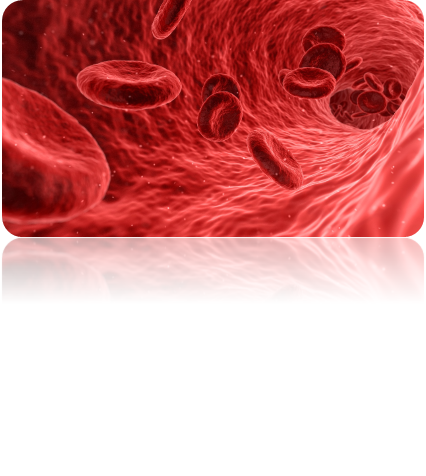
Session on: Toxic Effects on Liver and Kidney
The liver is the most important site of biotransformation and detoxification of xenobiotics. Clinical inclusion of dangerous liver damage run from sluggish, regularly asymptomatic movement of the impedance of hepatic capacity to fast improvement of hepatic failure. The kidneys are introduced to exogenous or endogenous xenobiotics in their part as basic protections against hazardous xenobiotics entering the blood framework. Natural solvents and substantial metals are both unusual classes of toxicants known to antagonistically affect renal capacity. Drugs like amphetamine and Ecstasy cause a body to conserve urine.
The forced or conserved urine can back up all the way to the kidneys, resulting in kidney failure or even cardiac arrest. Also, the toxins build up in the blood can cause confusion and headaches. Ecstasy, amphetamine, and methamphetamine abuse are the main reason to cause chronic liver inflammation (hepatitis). The use of Ecstasy can generate sudden and severe hepatitis that results in liver failure and death, even days or weeks later. Examine yourself into this research platform to enlighten more about the harmful effects on liver and kidney caused by few medicines which you might use in your everyday life at Clinical Toxicology. To know more about Clinical Toxicology and Pharmacology.
Related: Clinical Toxicology Conference | Clinical Toxicology Conferences | Clinical Toxicology Congress | Toxicology Conference | Toxicology Conferences | Toxicology Congress | Pharmacology Conference | Pharmacology Conferences | Pharmacology Congress | Pharmaceutical Conference | Pharmaceutical Conferences | Pharmaceutical congress | Environment Toxicology and Pharmacology | Pharmaceutics Conference
Related Conferences: 3rd World Congress on Environmental Toxicology and Health March 30-31,2020 Osaka, Japan; 22nd World Congress on Toxicology and Pharmacology April 22-23, 2020 Kyoto, Japan; Annual Conference on Inhalation Toxicology October 22-23, 2020 Helsinki, Finland; 19th International Conference on Global Toxicology and Risk Assessment November 05-06, 2020 Madrid, Spain
Related Associations: Academy of Toxicological Sciences, American Academy of Clinical Toxicology, American College of Medical Toxicology, American College of Toxicology, The Asian Society of Toxicology
Environmental Toxicology can be described as the detailed study of the destiny and effects of chemicals in the earth that includes harmful chemicals normally found in the earth (i.e., critter venom, microbial and plant poisons). Environmental toxicology is usually connected with the examination of environmental chemicals of the anthropogenic starting point. Environmental toxicology can be categorized into two subcategories: Environmental Health Toxicology and Ecotoxicology.
Biotic and abiotic processes provide a lot of contribution to the degradation of chemicals. The biotic degradation takes place through microorganisms whereas abiotic degradation takes place by hydrolysis and photolysis. Ecological degradation or environmental degradation of chemical toxins happens at an enormous quickened rate through the activity of microorganisms generally gets converted into fossils. Microorganisms (principally bacteria and fungi) abase chemicals in a push to get vitality from these sources. These biotic degradative procedures are catalyst arbitrated and normally happen at rates that far beat abiotic debasement. Biotic degradative procedures can quickly finish the mineralization of chemicals to water, carbon dioxide, and basic inorganic constituents. For a better understanding of environmental chemicals and its harmful effects on nature let's get to know more about Clinical Toxicology. To know more about Clinical Toxicology and Pharmacology Conference.
Related: Clinical Toxicology Conference | Clinical Toxicology Conferences | Clinical Toxicology Congress | Toxicology Conference | Toxicology Conferences | Toxicology Congress | Pharmacology Conference | Pharmacology Conferences | Pharmacology Congress | Pharmaceutical Conference | Pharmaceutical Conferences | Pharmaceutical congress | Environment Toxicology and Pharmacology | Pharmaceutics Conference
Related Conferences: 3rd World Congress on Environmental Toxicology and Health March 30-31,2020 Osaka, Japan; 22nd World Congress on Toxicology and Pharmacology April 22-23, 2020 Kyoto, Japan; Annual Conference on Inhalation Toxicology October 22-23, 2020 Helsinki, Finland; 19th International Conference on Global Toxicology and Risk Assessment November 05-06, 2020 Madrid, Spain
Related Associations: Society of Forensic Toxicologists, The International Association of Forensic Toxicologists (TIAFT), Forensic and Clinical Toxicology Association (FACTA), Association of Forensic Toxicologists, American Board of Forensic Toxicology (ABFT), California Association of Toxicologists, Cameroon Society for Toxicological Sciences, (EUROTOX), American Academy of Clinical Toxicology, Academy of Toxicological Sciences
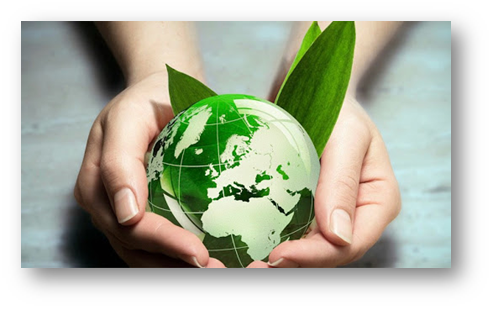
In science and pharmacology forensic toxicology is one of the branches which is basically concerned about the impacts and amount of dangerous medications and toxic substances on individuals. In forensic toxicology, the primary plot is the extent to which medications and toxins may have added to disability or death. The synthetic makeover of every substance is intended, and they are additionally differentiated from various sources, for example, urine or hair. Forensic toxicology generally handles with the way that substances are consumed, dispersed or terminated in the body – the metabolism of substances.
While there are various utilizations for forensic toxicology testing, medication and alcohol testing are mostly known in this segment. This kind of analysis is usually performed in the transportation business and in working environments. Another purpose is for sedate overdoses, regardless of whether these are planned or inadvertent. This session at Clinical Toxicology would talk about how the excessiveness of various medications and prescriptions prompt weakness or demise of people. To discover more Clinical Toxicology and Pharmacology Conference.
Related: Clinical Toxicology Conference | Clinical Toxicology Conferences | Clinical Toxicology Congress | Toxicology Conference | Toxicology Conferences | Toxicology Congress | Pharmacology Conference | Pharmacology Conferences | Pharmacology Congress | Pharmaceutical Conference | Pharmaceutical Conferences | Pharmaceutical congress | Environment Toxicology and Pharmacology | Pharmaceutics Conference
Related Conferences: 3rd World Congress on Environmental Toxicology and Health March 30-31,2020 Osaka, Japan; 22nd World Congress on Toxicology and Pharmacology April 22-23, 2020 Kyoto, Japan; Annual Conference on Inhalation Toxicology October 22-23, 2020 Helsinki, Finland; 19th International Conference on Global Toxicology and Risk Assessment November 05-06, 2020 Madrid, Spain
Related Associations: Society of Environmental Toxicology and Chemistry, European Centre for Ecotoxicology and Toxicology of Chemicals, Australasian Society for Ecotoxicology (ASE), Federation of European Toxicologists and European Societies of Toxicology, Association of Comparative and, Academy of Toxicological Science, American Academy of Clinical Toxicology, Australasian College of Toxicology and Risk Assessment.
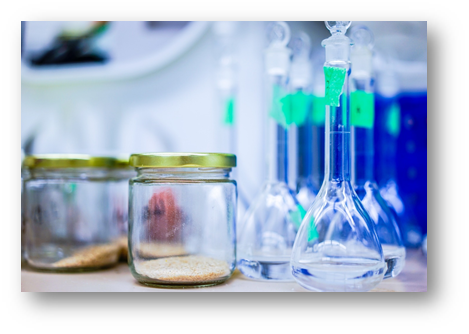
Organic solutions can conceivably cause antagonistic medication responses analyzed with immunosuppression, immune stimulation and exaggerated sensitivity. These incorporate cytokine discharge related intense responses which include the creation of pro-inflammatory cytokines. The clinical signs can go from influenza-like responses to more intense Cytokine Release Syndromes (CRS). Immunotoxicology is the investigation of an undesired twist of the immune system by additional variables. Toxicological evaluations have portrayed that the immune system is a destination following addition to an assorted gathering of xenobiotics which includes ultraviolet radiation, synthetic toxins, therapeutics, and recreational medications. There are a settled principle and deep link between obliteration of the immune response and diminished protection from diseases and certain kinds of neoplasia. In people, mellow to straight obliteration of the immune response is the link to reduced protection from normal, group gained diseases, though adroit contaminations, which are unique in the all-broad community, are basic in people with serious concealment. To know more and get further research ideas on Toxicology and it's harmful effects on the immune system join us at Clinical Toxicology. To know more about Clinical Toxicology and Pharmacology Conference.
Related: Clinical Toxicology Conference | Clinical Toxicology Conferences | Clinical Toxicology Congress | Toxicology Conference | Toxicology Conferences | Toxicology Congress | Pharmacology Conference | Pharmacology Conferences | Pharmacology Congress | Pharmaceutical Conference | Pharmaceutical Conferences | Pharmaceutical congress | Environment Toxicology and Pharmacology | Pharmaceutics Conference
Related Conferences: 3rd World Congress on Environmental Toxicology and Health March 30-31,2020 Osaka, Japan; 22nd World Congress on Toxicology and Pharmacology April 22-23, 2020 Kyoto, Japan; Annual Conference on Inhalation Toxicology October 22-23, 2020 Helsinki, Finland; 19th International Conference on Global Toxicology and Risk Assessment November 05-06, 2020 Madrid, Spain
Related Associations: Society of Environmental Toxicology and Chemistry, European Centre for Ecotoxicology and Toxicology of Chemicals, Australasian Society for Ecotoxicology (ASE), Federation of European Toxicologists and European Societies of Toxicology, Association of Comparative and, Academy of Toxicological Science, American Academy of Clinical Toxicology, Australasian College of Toxicology and Risk Assessment.
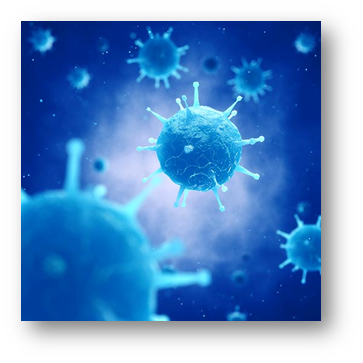
The genotoxic substances incite harm to the genetic material in the cells through connections with the DNA grouping and structure. Genetic toxicology is the investigation of the impacts of chemical and physical operators on genetic material. Genetic Toxicology also incorporates the investigation of DNA harm in living cells that prompts malignancy, however, it likewise looks at changes in DNA that can be acquired starting with one generation then onto the next.
It is a perplexing science since there are various distinctive sorts of genome harm, which emerge through an assorted variety of systems: Chromosomes may be broken (clastogenesis), the data inside a DNA succession may wind up plainly modified or reorganized (mutagenesis), entire chromosomes may be missegregation (neogenesis), there can be a trade of areas of chromosomes which can change gene regulation(recombination). To find out about Genetic Toxicology which harms the genetic material and Share your research ideas let's gather at Clinical Toxicology. To know more about Clinical Toxicology and Pharmacology Conference.
Related: Clinical Toxicology Conference | Clinical Toxicology Conferences | Clinical Toxicology Congress | Toxicology Conference | Toxicology Conferences | Toxicology Congress | Pharmacology Conference | Pharmacology Conferences | Pharmacology Congress | Pharmaceutical Conference | Pharmaceutical Conferences | Pharmaceutical congress | Environment Toxicology and Pharmacology | Pharmaceutics Conference
Related Conferences: 3rd World Congress on Environmental Toxicology and Health March 30-31,2020 Osaka, Japan; 22nd World Congress on Toxicology and Pharmacology April 22-23, 2020 Kyoto, Japan; Annual Conference on Inhalation Toxicology October 22-23, 2020 Helsinki, Finland; 19th International Conference on Global Toxicology and Risk Assessment November 05-06, 2020 Madrid, Spain
Related Associations: Genetic Toxicology Association (GTA), European Society of Human Genetics (ESHG), European Centre for Ecotoxicology and Toxicology of Chemicals (ECETOC), Spanish Association of Toxicology (AETOX), International Association of Environmental Mutagen Societies (IAEMS), Genetic and Environmental Toxicology Association (GETA), European Environmental Mutagen Society (EEMS).
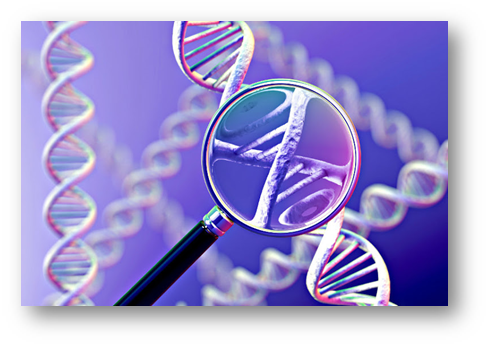
The Molecular Toxicology claim to fame segment is keen on the molecular mechanisms whereby chemicals cause harmfulness. There are a few explanations behind this intrigue. Right off the bat, mechanisms of toxicity can reveal central parts of science. Hence, poisons, for example, cyanide and rotenone were utilized to reveal the presence of the Krebs cycle, a focal segment of cellular energy metabolism. Programs in the field of molecular toxicology study the effects of chemicals on living microscopic organisms. This form of toxicology examines both naturally occurring and synthetic chemicals. Also considered are the effects of genetic, physiologic and environmental factors on organisms. Join your peers in Clinical Toxicology to gain a better understanding regarding molecules, it's interaction with biomolecules and various molecular methods which aim at preventing toxicity and enhancing our understanding of health risk assessment. To know more about Clinical Toxicology and Pharmacology Conference.
Related: Clinical Toxicology Conference | Clinical Toxicology Conferences | Clinical Toxicology Congress | Toxicology Conference | Toxicology Conferences | Toxicology Congress | Pharmacology Conference | Pharmacology Conferences | Pharmacology Congress | Pharmaceutical Conference | Pharmaceutical Conferences | Pharmaceutical congress | Environment Toxicology and Pharmacology | Pharmaceutics Conference
Related Conferences: 3rd World Congress on Environmental Toxicology and Health March 30-31,2020 Osaka, Japan; 22nd World Congress on Toxicology and Pharmacology April 22-23, 2020 Kyoto, Japan; Annual Conference on Inhalation Toxicology October 22-23, 2020 Helsinki, Finland; 19th International Conference on Global Toxicology and Risk Assessment November 05-06, 2020 Madrid, Spain
Related Associations: EUROTOX, Society of Toxicology (SOT), Academy of Toxicological Sciences, American Academy of Clinical Toxicology, American Board of Toxicology (ABT), Colombia Society of Toxicology, Association of Comparative and Environmental Toxicology, British Toxicology Society Annual Congress, European Association of Poison Centers and Clinical Toxicologists, Asia Pacific Association of Medical Toxicology.
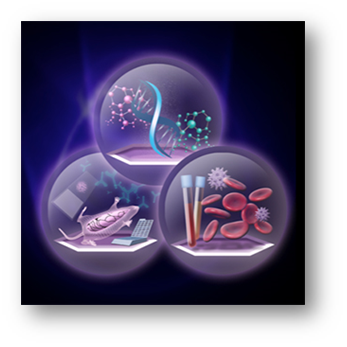
Reproductive toxicity refers to conflicting effects of a toxic and harmful chemicals on sexual function and fertility in adults as well as developmental toxicity in the offspring, whereas developmental toxicity pertains to adverse effects on the developing embryo or fetus. Chemicals cause developmental toxicity in two ways. They can act directly on cells of the embryo or fetus causing cell death or cell damage, leading to abnormal organ development. A chemical might also induce a mutation in a parent's germ cell which is transmitted to the fertilized ovum. Some mutated fertilized ova develop into abnormal embryos. To know more about Clinical Toxicology and Pharmacology Conference.
Related: Clinical Toxicology Conference | Clinical Toxicology Conferences | Clinical Toxicology Congress | Toxicology Conference | Toxicology Conferences | Toxicology Congress | Pharmacology Conference | Pharmacology Conferences | Pharmacology Congress | Pharmaceutical Conference | Pharmaceutical Conferences | Pharmaceutical congress | Environment Toxicology and Pharmacology | Pharmaceutics Conference
Related Conferences: 3rd World Congress on Environmental Toxicology and Health March 30-31,2020 Osaka, Japan; 22nd World Congress on Toxicology and Pharmacology April 22-23, 2020 Kyoto, Japan; Annual Conference on Inhalation Toxicology October 22-23, 2020 Helsinki, Finland; 19th International Conference on Global Toxicology and Risk Assessment November 05-06, 2020 Madrid, Spain
Related Associations: Reproductive and Developmental toxicology Speciality Section (RDTSS), European Society of Human Genetics (ESHG), European Centre for Ecotoxicology and Toxicology of Chemicals (ECETOC), The Spanish Association of Toxicology (AETOX), Spanish Society of Environmental Health, The Federation of European Pharmacological Societies, International Association of Environmental Mutagen Societies (IAEMS), Genetic and Environmental Toxicology Association ((GETA), European Environmental Mutagen Society (EEMS).
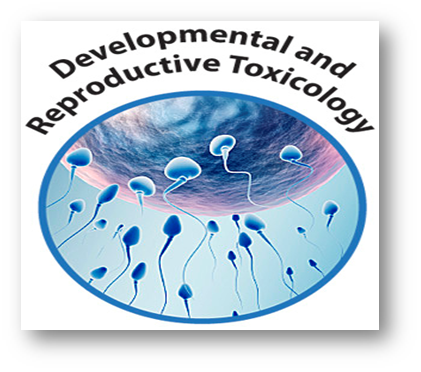
Systemic toxicology is the study of the adverse effects of a substance on various organs or tissues. Toxicity is often subdivided into acute, sub-acute and chronic toxicity. Acute toxicity describes the adverse effects of a substance that results either from a single exposure or from multiple exposures in a short space of time (within 24 hours). Relatively, acute toxicity is important to classify Global Harmonized System of Classification and Labelling of Chemicals (GHS) category of a substance, five GHS categories of severity where category 1 requires the least amount of exposure to be lethal and category 5 requires the most exposure to be lethal. To know more about Clinical Toxicology and Pharmacology Conference.
Related: Clinical Toxicology Conference | Clinical Toxicology Conferences | Clinical Toxicology Congress | Toxicology Conference | Toxicology Conferences | Toxicology Congress | Pharmacology Conference | Pharmacology Conferences | Pharmacology Congress | Pharmaceutical Conference | Pharmaceutical Conferences | Pharmaceutical congress | Environment Toxicology and Pharmacology | Pharmaceutics Conference
Related Conferences: 3rd World Congress on Environmental Toxicology and Health March 30-31,2020 Osaka, Japan; 22nd World Congress on Toxicology and Pharmacology April 22-23, 2020 Kyoto, Japan; Annual Conference on Inhalation Toxicology October 22-23, 2020 Helsinki, Finland; 19th International Conference on Global Toxicology and Risk Assessment November 05-06, 2020 Madrid, Spain
Related Associations: Reproductive and Developmental toxicology Speciality Section (RDTSS), European Society of Human Genetics (ESHG), European Centre for Ecotoxicology and Toxicology of Chemicals (ECETOC), The Spanish Association of Toxicology (AETOX), Spanish Society of Environmental Health, The Federation of European Pharmacological Societies, International Association of Environmental Mutagen Societies (IAEMS), Genetic and Environmental Toxicology Association (GETA), European Environmental Mutagen Society (EEMS).
Implementation of methodology and standards of toxicology is to forbid the hazardous health effects from drug candidates. The central objective of toxicology studies is to calculate the safety of potential drug candidates in the drug development process. This can be efficient by utilizing various important animal models and approved methodology.
A major aim is to analyze the animal prototype reactions into an apprehension of the hazard for human subjects. To this end, the toxicologist must know about the international procedures for safety assessment and including the traditional and nontraditional toxicology models. The distinctive toxicology profile consist of safety pharmacology, acute and sub-chronic toxicology, chronic toxicology, ingestion, distribution, digestion, and excretion studies, genetic toxicology, reproductive and developmental toxicology and an assessment of cancer-causing potential. With a specific end target to think about the several applications in toxicology and the current headways in preventing chemical toxicity, we should associate at Clinical Toxicology.
Related: Clinical Toxicology Conference | Clinical Toxicology Conferences | Clinical Toxicology Congress | Toxicology Conference | Toxicology Conferences | Toxicology Congress | Pharmacology Conference | Pharmacology Conferences | Pharmacology Congress | Pharmaceutical Conference | Pharmaceutical Conferences | Pharmaceutical congress | Environment Toxicology and Pharmacology | Pharmaceutics Conference
Related Conferences: 3rd World Congress on Environmental Toxicology and Health March 30-31,2020 Osaka, Japan; 22nd World Congress on Toxicology and Pharmacology April 22-23, 2020 Kyoto, Japan; Annual Conference on Inhalation Toxicology October 22-23, 2020 Helsinki, Finland; 19th International Conference on Global Toxicology and Risk Assessment November 05-06, 2020 Madrid, Spain
Related Associations: Society of Forensic Toxicologists, The International Association of Forensic Toxicologists (TIAFT), Forensic and Clinical Toxicology Association (FACTA), Association of Forensic Toxicologists, American Board of Forensic Toxicology (ABFT), California Association of Toxicologists, Cameroon Society for Toxicological Sciences, (EUROTOX), American Academy of Clinical Toxicology, Academy of Toxicological Sciences.
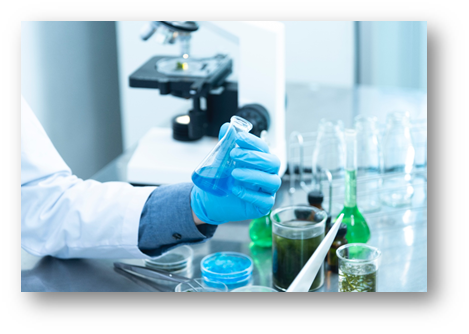
From the word Pharma its crystal clear that it is the study of drugs. The Pharmacology field majorly comprises the study of drug’s action and reaction in living beings by using the basic concepts of biology and chemistry. It gives us a different prospect while understanding the functioning of the organs and numerous mechanisms of metabolism of living beings. It also allows us to study the various causes of malfunction of the biological system. Pharmacologic research is necessary for drug development, testing and its use to treat disease.
Related: Clinical Toxicology Conference | Clinical Toxicology Conferences | Clinical Toxicology Congress | Toxicology Conference | Toxicology Conferences | Toxicology Congress | Pharmacology Conference | Pharmacology Conferences | Pharmacology Congress | Pharmaceutical Conference | Pharmaceutical Conferences | Pharmaceutical congress | Environment Toxicology and Pharmacology | Pharmaceutics Conference
Related Conferences: 3rd World Congress on Environmental Toxicology and Health March 30-31,2020 Osaka, Japan; 22nd World Congress on Toxicology and Pharmacology April 22-23, 2020 Kyoto, Japan; Annual Conference on Inhalation Toxicology October 22-23, 2020 Helsinki, Finland; 19th International Conference on Global Toxicology and Risk Assessment November 05-06, 2020 Madrid, Spain
Related Associations: Society of Environmental Toxicology and Chemistry (SETAC), European Centre for Ecotoxicology and Toxicology of Chemicals (ECETOC), Australasian Society for Ecotoxicology (ASE), Federation of European Toxicologists and European Societies of Toxicology, Association of Comparative and, Academy of Toxicological Sciences, American Academy of Clinical Toxicology.

In order to understand pharmacokinetics and pharmacodynamics of drugs utilized in psychopharmacology across the pediatric age spectrum starting from infants to adolescents represents a huge challenge for clinicians. In pediatrics, treatment protocols use either standard dose reductions for these drugs for children below a certain age or use very less conventional parameters such as weight for allometric dosing. The principle behind this, however, is often lacking. In this review current available information on the improvement changes in absorption, distribution, metabolism, and elimination of drugs are presented with a specific concentration on metabolic pathways, indicating important differences in the formation of the enzymes associated with the biotransformation of medicines used in psychopharmacology. A lot of the emphasis would be given to the genetic variation in CYP2D6 activity, one of the most important enzymes for the metabolism of many psychotropic medications. Lastly, the survey will compile the role of the developmental pharmacologist to assure the analytical use of narcotics in offspring as well as youngsters with developmental deterioration and in translating pharmacological concepts from the bench to the clinic. To know more about Clinical Toxicology and Pharmacology Conference.
Related: Clinical Toxicology Conference | Clinical Toxicology Conferences | Clinical Toxicology Congress | Toxicology Conference | Toxicology Conferences | Toxicology Congress | Pharmacology Conference | Pharmacology Conferences | Pharmacology Congress | Pharmaceutical Conference | Pharmaceutical Conferences | Pharmaceutical congress | Environment Toxicology and Pharmacology | Pharmaceutics Conference
Related Conferences: 3rd World Congress on Environmental Toxicology and Health March 30-31,2020 Osaka, Japan; 22nd World Congress on Toxicology and Pharmacology April 22-23, 2020 Kyoto, Japan; Annual Conference on Inhalation Toxicology October 22-23, 2020 Helsinki, Finland; 19th International Conference on Global Toxicology and Risk Assessment November 05-06, 2020 Madrid, Spain
Related Associations: Society of Environmental Toxicology and Chemistry (SETAC), European Centre for Ecotoxicology and Toxicology of Chemicals (ECETOC), Australasian Society for Ecotoxicology (ASE), Federation of European Toxicologists and European Societies of Toxicology, Association of Comparative and, Academy of Toxicological Sciences, American Academy of Clinical Toxicology.
Understanding the pharmacokinetics and pharmacodynamics of drugs used in psychopharmacology across the Pediatric age spectrum from infants to adolescents represents a major challenge for clinicians. In pediatrics, treatment protocols use either standard dose reductions for these drugs for children below a certain age or use less conventional parameters such as weight for allometric dosing. The rationale behind this, however, is often lacking. In this review current available data on the developmental changes in absorption, distribution, metabolism, and elimination of drugs are presented with a specific focus on metabolic pathways, indicating significant differences in the development of enzymes involved in the biotransformation of drugs used in psychopharmacology. Major emphasis will be given to the genetic variation in CYP2D6 activity, the most important enzyme for the metabolism of many psychotropic medications. Lastly, the overview will compile the role of the developmental pharmacologist assuring analytical use of narcotics in offspring as well as youngsters with developmental impairments and in translating pharmacological concepts from the bench to the clinic. To know more about Clinical Toxicology and Pharmacology Conference.
Related: Clinical Toxicology Conference | Clinical Toxicology Conferences | Clinical Toxicology Congress | Toxicology Conference | Toxicology Conferences | Toxicology Congress | Pharmacology Conference | Pharmacology Conferences | Pharmacology Congress | Pharmaceutical Conference | Pharmaceutical Conferences | Pharmaceutical congress | Environment Toxicology and Pharmacology | Pharmaceutics Conference
Related Conferences: 3rd World Congress on Environmental Toxicology and Health March 30-31,2020 Osaka, Japan; 22nd World Congress on Toxicology and Pharmacology April 22-23, 2020 Kyoto, Japan; Annual Conference on Inhalation Toxicology October 22-23, 2020 Helsinki, Finland; 19th International Conference on Global Toxicology and Risk Assessment November 05-06, 2020 Madrid, Spain
Related Associations: Society of Environmental Toxicology and Chemistry (SETAC), European Centre for Ecotoxicology and Toxicology of Chemicals (ECETOC), Australasian Society for Ecotoxicology (ASE), Federation of European Toxicologists and European Societies of Toxicology, Association of Comparative and, Academy of Toxicological Sciences, American Academy of Clinical Toxicology.
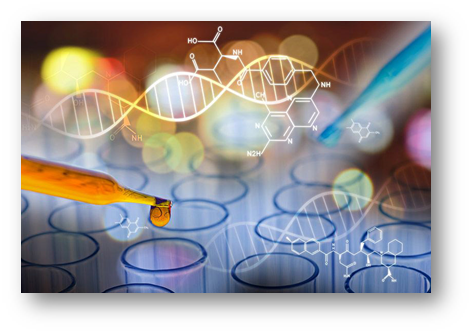
Clinical pharmacology is the broad study of drugs and their clinical applications. It is supported by the basic science of pharmacology, which draws focuses on the application of pharmacological principles and quantitative methods in the real world. This branch comprises of a broad concept, right from the discovery of new target molecules to the impact of drug usage in whole populations.
Related: Clinical Toxicology Conference | Clinical Toxicology Conferences | Clinical Toxicology Congress | Toxicology Conference | Toxicology Conferences | Toxicology Congress | Pharmacology Conference | Pharmacology Conferences | Pharmacology Congress | Pharmaceutical Conference | Pharmaceutical Conferences | Pharmaceutical congress | Environment Toxicology and Pharmacology | Pharmaceutics Conference
Related Conferences: 3rd World Congress on Environmental Toxicology and Health March 30-31,2020 Osaka, Japan; 22nd World Congress on Toxicology and Pharmacology April 22-23, 2020 Kyoto, Japan; Annual Conference on Inhalation Toxicology October 22-23, 2020 Helsinki, Finland; 19th International Conference on Global Toxicology and Risk Assessment November 05-06, 2020 Madrid, Spain
Related Associations: Society of Environmental Toxicology and Chemistry (SETAC), European Centre for Ecotoxicology and Toxicology of Chemicals (ECETOC), Australasian Society for Ecotoxicology (ASE), Federation of European Toxicologists and European Societies of Toxicology, Association of Comparative and, Academy of Toxicological Sciences, American Academy of Clinical Toxicology.
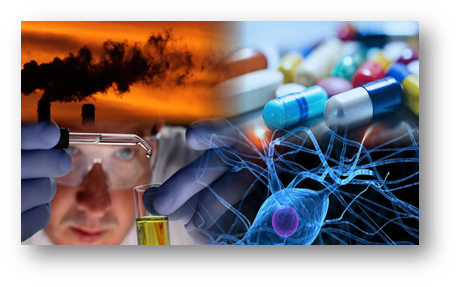
Pharmacodynamics (PD) is the branch of study related to biochemical and physiologic actions and reactions of drugs (especially pharmaceutical drugs). The effects can include those manifested within animals(including humans), microorganisms, or combinations of organisms (for example, infection). Pharmacodynamics is the study of how a drug affects an organism, whereas pharmacokinetics is the study of how the organism affects the drug. Both together influence dosing, benefit, and adverse effects.
Related: Clinical Toxicology Conference | Clinical Toxicology Conferences | Clinical Toxicology Congress | Toxicology Conference | Toxicology Conferences | Toxicology Congress | Pharmacology Conference | Pharmacology Conferences | Pharmacology Congress | Pharmaceutical Conference | Pharmaceutical Conferences | Pharmaceutical congress | Environment Toxicology and Pharmacology | Pharmaceutics Conference
Related Conferences: 3rd World Congress on Environmental Toxicology and Health March 30-31,2020 Osaka, Japan; 22nd World Congress on Toxicology and Pharmacology April 22-23, 2020 Kyoto, Japan; Annual Conference on Inhalation Toxicology October 22-23, 2020 Helsinki, Finland; 19th International Conference on Global Toxicology and Risk Assessment November 05-06, 2020 Madrid, Spain
Related Associations: Society of Environmental Toxicology and Chemistry (SETAC), European Centre for Ecotoxicology and Toxicology of Chemicals (ECETOC), Australasian Society for Ecotoxicology (ASE), Federation of European Toxicologists and European Societies of Toxicology, Association of Comparative and, Academy of Toxicological Sciences, American Academy of Clinical Toxicology.
Pharmacokinetics is one of the most important branches of Pharmacology which decides whether the drugs would reach the destined organs. It basically deals with the study of the fate of substances administered inside a living being. The substances can be any chemical like xenobiotics such as pharmaceutical drugs, pesticides, food additives, cosmetics, etc. It focusses on the chemical metabolism and to discover the fate of a chemical from the moment that is introduced in our body up to the point at which is completely eliminated from the body. Pharmacokinetics deals with how an organism affects a drug, whereas pharmacodynamics (PD) deals with how the drug affects the organism. Both of them altogether influence dosing, benefit, and adverse effects, as seen in PK/PD models.
Related: Clinical Toxicology Conference | Clinical Toxicology Conferences | Clinical Toxicology Congress | Toxicology Conference | Toxicology Conferences | Toxicology Congress | Pharmacology Conference | Pharmacology Conferences | Pharmacology Congress | Pharmaceutical Conference | Pharmaceutical Conferences | Pharmaceutical congress | Environment Toxicology and Pharmacology | Pharmaceutics Conference
Related Conferences: 3rd World Congress on Environmental Toxicology and Health March 30-31,2020 Osaka, Japan; 22nd World Congress on Toxicology and Pharmacology April 22-23, 2020 Kyoto, Japan; Annual Conference on Inhalation Toxicology October 22-23, 2020 Helsinki, Finland; 19th International Conference on Global Toxicology and Risk Assessment November 05-06, 2020 Madrid, Spain
Related Associations: Society of Environmental Toxicology and Chemistry (SETAC), European Centre for Ecotoxicology and Toxicology of Chemicals (ECETOC), Australasian Society for Ecotoxicology (ASE), Federation of European Toxicologists and European Societies of Toxicology, Association of Comparative and, Academy of Toxicological Sciences, American Academy of Clinical Toxicology.
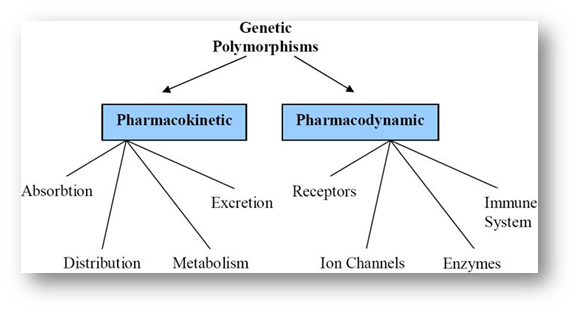
According to the recent surveys, the global market of research toxicology testing is determined to be worth USD 14,343.01 Million by 2025 and is increasing at a very high-single-digit CAGR from 2017 to 2025. The ADME toxicology testings showed interesting digits with USD 6,986.20 Million in 2015 and are also expected to reach USD 14,319.9 Million by the year 2022, expanding at a CAGR of 10.6% from 2016 to 2022.
The Toxicology global market is categorized into 5 parts, which include methods, industries, endpoint tests, and geography. Among various methods, the in vitro segment accounted for the largest share in 2017 and is projected to have a growth of strong double-digit CAGR from 2017 to 2025 due to technological advancements, increased acceptance, and implementation of the 3R’s. Based on industry, the toxicology services global market is further segmented into pharmaceutical, medical devices, cosmetic, chemical and other industries. The pharmaceutical segment comprises the largest share of the market while the cosmetic industry is growing at a very high double-digit CAGR from 2017 to 2025.
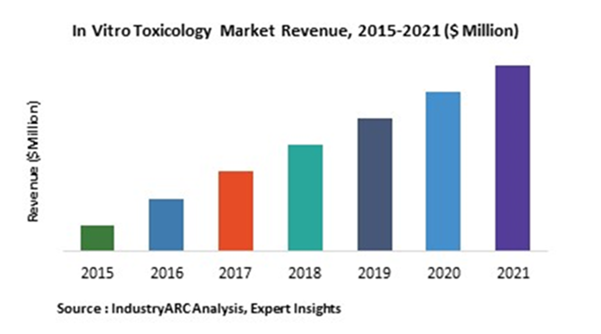
The fastest-growing of all the segments in the Toxicology market is recorded to be Developmental and Reproductive Toxicology is also called as DART. North America came up to be the highest generating revenue region in 2017. On the other hand, The Asia-Pacific region is expected to grow fastest due to favorable government regulations and investments. Whereas the systemic toxicology segment has been regarded for the largest share in 2017 based on numerous endpoints and is projected to grow at a mid-single-digit CAGR from 2017 to 2025.
North America’s In-vitro toxicology testing the market is expected to reach USD 7.89 billion by 2021 from USD 4.19 billion in 2016, growing at a CAGR of 13.50% for the next five years 2016-2021. Europe In-vitro toxicology testing the market is further expected to reach USD 8.40 billion by 2021 from USD 4.60 billion in 2016, increasing at a CAGR of 12.80% for the next five years 2016-2021. Asia-Pacific In-vitro toxicology testing the market is expected to reach USD 5.23 billion by 2021 from USD 2.48 billion in 2016, increasing at a CAGR of 16.10% for the next five years 2016-2021. The In-vitro toxicology testing the market in African and Middle East banks on to reach USD 3.41 billion by 2021 from USD 1.63 billion in 2016, growing at a CAGR of 15.92%, similarly, the European market in toxicity testing seems to have a rapid growth based on the market scenario it is recorded that it is going to be a twofold replication i.e. from USD 4.6 billion to USD 8.4 billion is the third largest growing medium in the world.
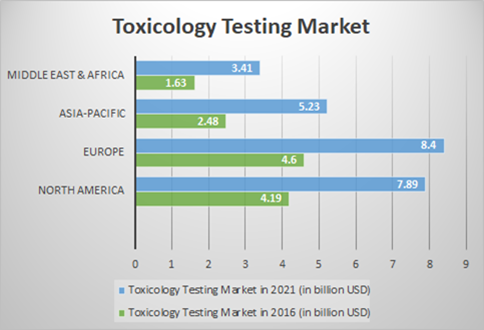
ADME is also called as Absorption, Distribution, Metabolism, and Elimination of chemicals or drugs. The process that describes the nature inside a human body, is therefore categorized into three major segments in-silico testing, in-vitro testing and in-vivo testing which is further classified into biochemical and cell i.e. liver, kidney and intestinal based assays. The two main compartments in the toxicology market are (I) influencing the performance of a drug towards human tissues; (II) toxicology testing before introducing a particular drug is increasingly becoming important.
The ADME toxicology testing the methodology is widely popular among all pharmaceutical and biotechnology companies for the development of new drug at a rapid rate and to minimize the drug discovery, testing and development costs today. Present-day cell-based measures are receiving much acknowledgment and advancement worldwide that will drive this the market in the coming future, a major advancement in the toxicology market is usage of computational interpretation for faster and accurate results.
North America holds the largest share and based on the digits it is intended to maintain its leadership position in future as well. The North American market is massively followed by the European market and their market leadership was attributed to the fact that the major pharmaceutical companies are residing in the U.S. and European countries. The Asia-pacific market is expected to observe the fastest rate of growth in the mere future due to increasing government support and collaborations with the foreign pharmaceuticals and research companies.